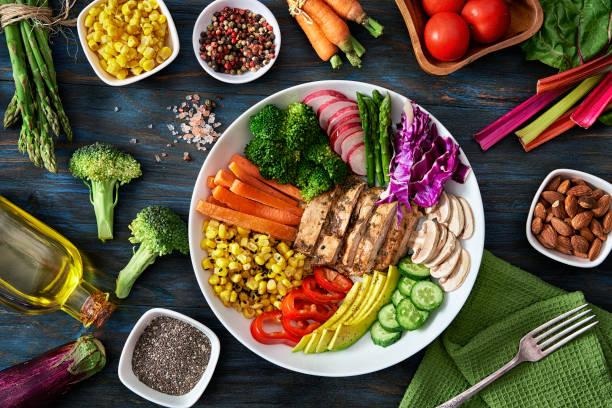
Weight loss is a journey where patience is key to success. here is 7 healthy tips for weight loss. Simple changes to your daily lifestyle can help you loose weight without dieting. Making healthy choices, like eating breakfast and moving every day, and having a balanced diet can be a miracle in disguise in the weight loss journey.
“A huge part of losing weight is believing you can do it and realizing it’s not going to happen overnight.”
Most of us don’t even know how unhealthy our daily lifestyle is until we finally step on the scale. Weight loss is no rocket science but due to many modern and new dieting styles have made it more and more complicated with time. It’s complexity have reached to a certain point that people are so confused whether to choose a keto diet, a low card diet or a liquid diet. This not the proper, way anything that keeps you away from your favorite foods forever is bound to be a miserable experience.
Addition of some healthy habits will do the job the longer you stick with eating healthy foods, the longer you reap its benefits. In this article you’ll get to know about 7 tips that will help you loose weight. The process of losing weight typically involves a combination of dietary changes, increased physical activity, and sometimes behavioral modifications.
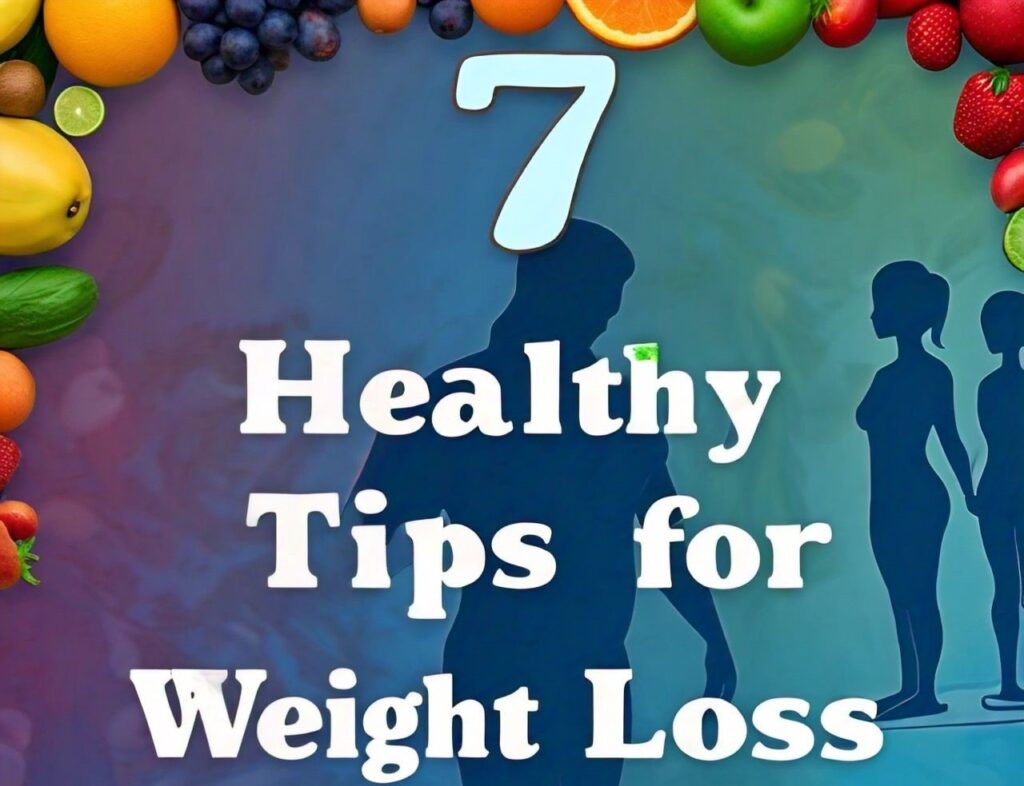
1. Add protein to your diet
A certain amount of protein (25 to 35 grams) can be absorbed and used at once. It’s a good idea to eat smaller amounts of protein throughout the day, rather than a lot at one meal. Protein takes longer to digest than other types of nutrients, so it can keep you satisfied for longer. This can potentially help you stave off snacking and cut some calories.
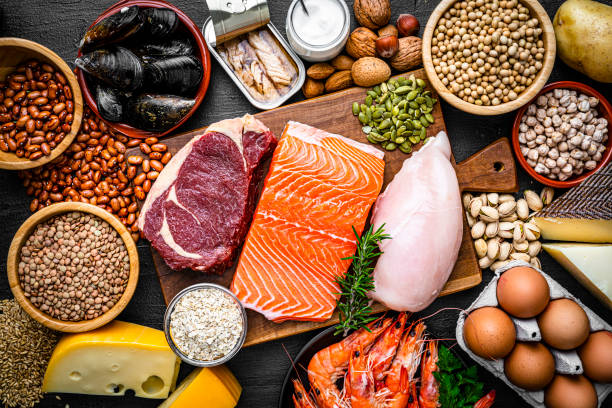
In research, eating a higher protein diet over longer periods of time has been linked to eating less and weighing less.
NON VEG OPTIONS
•Meats: Chicken, turkey, lean, beef, pork etc.
•Eggs: All types.
PESCATARIAN OPTIONS
•Fish: Salmon, sardines, haddock, trout, etc.
VEG OPTIONS
•Dairy: Milk, cheese, yogurt, etc.
•Legumes: kidney beans, chickpeas, lentils, etc.
2. Limit your intake of refined carbs
A low carb diet isn’t just about weight loss. It may also improve your health. For this reason, the diet should be based on whole, unprocessed foods and healthy carb sources.
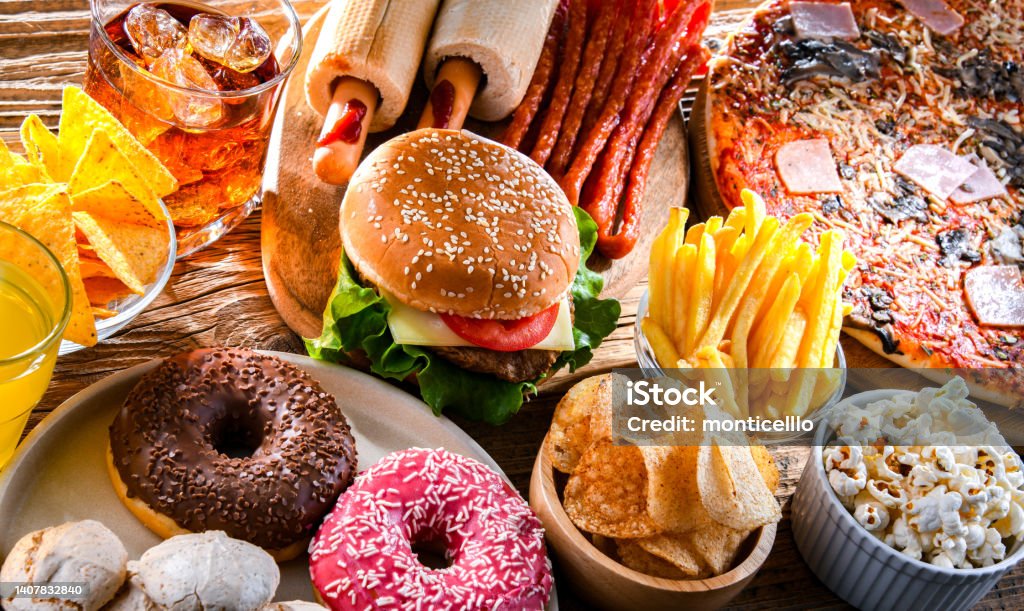
Most of the time people have a moderate carb intake, try to choose unrefined starch sources, like potatoes, sweet potatoes, oats, and brown rice.
Most types of bread, especially whole wheat bread, contain vitamins and minerals. Unrefined whole grain bread is also considered a complex carb, meaning it takes longer to digest and affects blood sugar gradually instead of all at once While breads made with refined grains, like white bread, aren’t always higher in carbs than whole grain breads.
3. Limit liquid calories
Liquid calories are calories supplied from liquid forms rather than those in solid form. Common sources of liquid calories include soda, energy drinks, sports drinks, protein shakes, and alcohol.

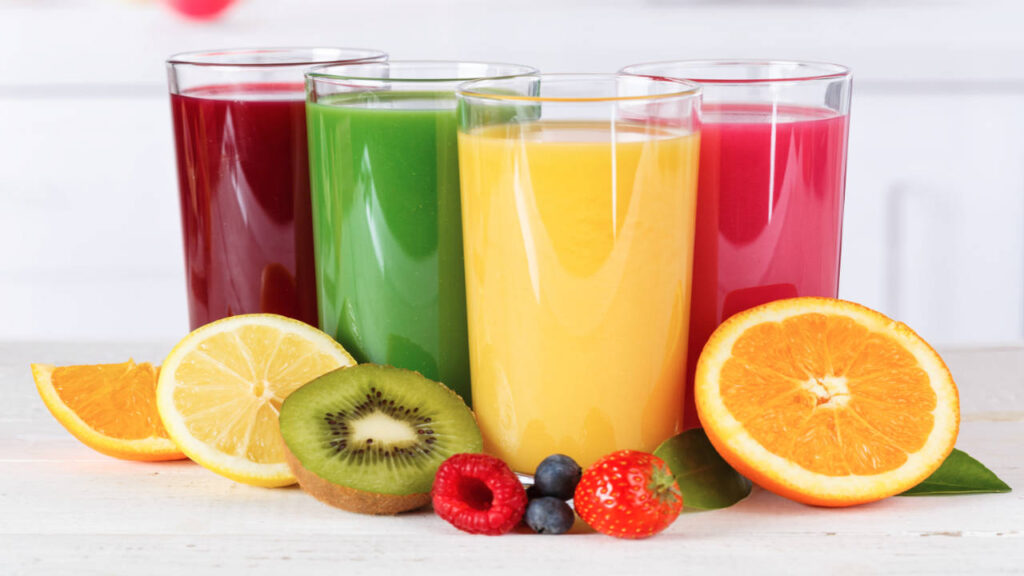
Fruit juices may seem like a healthier option, though some juices are loaded with sugar just the way sodas are because they are devoid of the essential fibers in the fruit.
When you replace the intake of these sugary and fizzy drinks with water, you are helping boost your metabolism, which, in turn, ensures that you lose weight at a faster rate. Water is also a natural appetite suppressant, drinking water to lose weight is a tried and tested technique.
4. Eat more fiber
A high-fiber diet can normalize bowel movements, soften stool and help maintain bowel health.

Vegetables are a great way to super-size meals and give you a hearty portion without adding too many calories some vegetables include Asparagus, Bell peppers, Spinach, Collard greens, Eggplant, Carrots, Broccoli, Cauliflower, Celery, Cabbage, and Squash.
Choose whole grain over refined to boost fiber intake. Try to add the following into your diet: Oats, Quinoa, Barley, Brown rice.
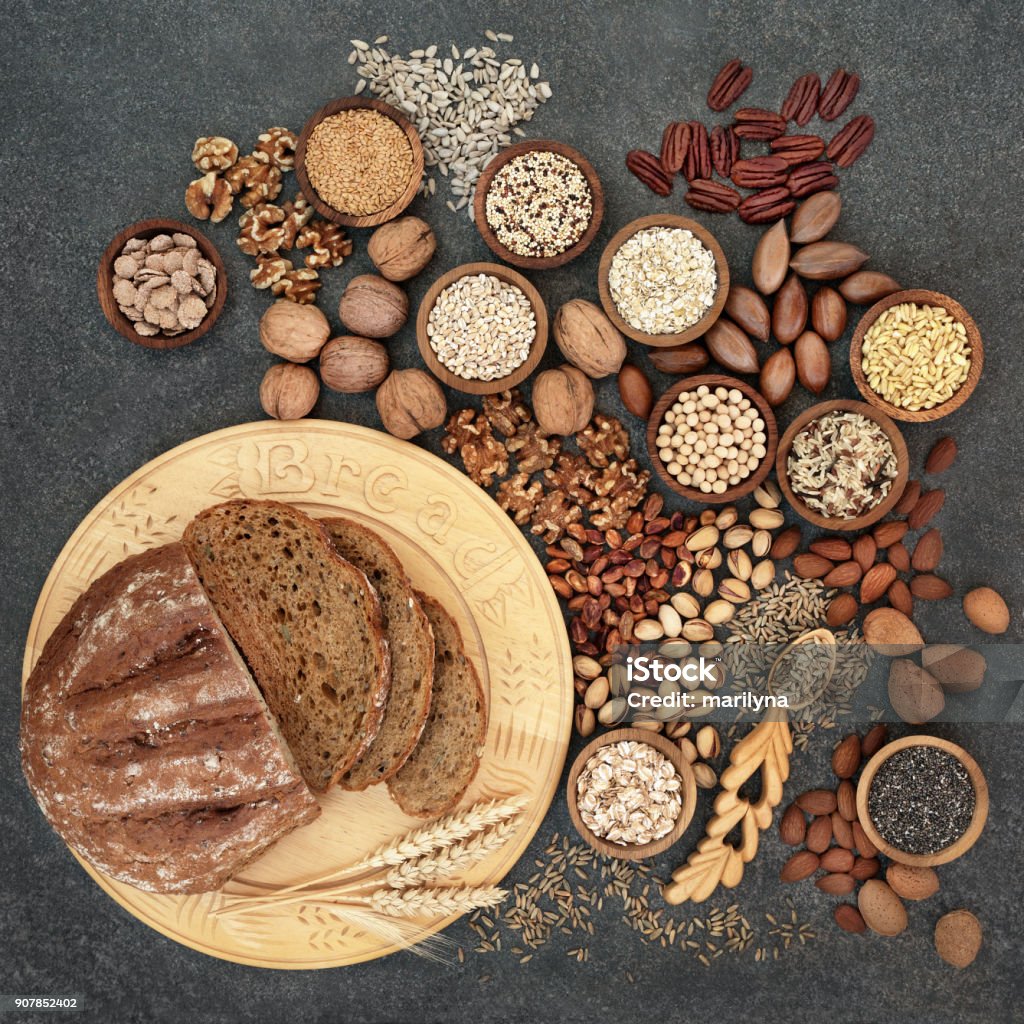
A high-fiber diet abundant in whole grains, vegetables, fruits, and legumes is closely aligned with current dietary guidelines for a healthy, balanced diet.
5. USE OF FERMENTED FOOD
Fermented foods can help to improve metabolism by introducing beneficial bacteria into the gut. These bacteria can help to break down food more efficiently and improve nutrient absorption. Improved metabolism can help to support weight loss and overall health.
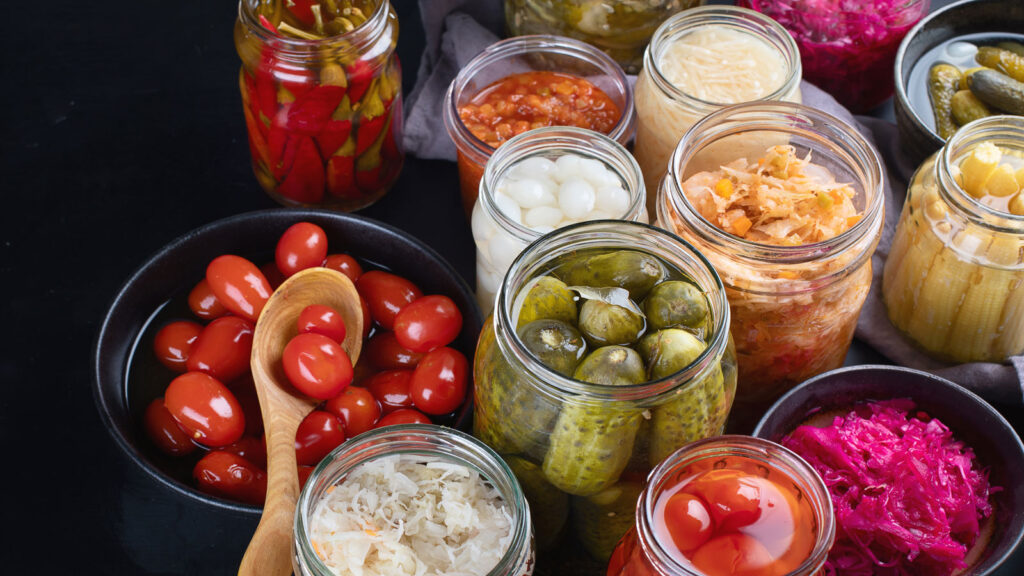
Fermented foods can help to improve metabolism by introducing beneficial bacteria into the gut.
To incorporate fermented foods for weight loss it is important to choose a variety of different types of fermented foods. Some fermented foods are:
- pickles
- sauerkraut
- kimchi (Korean pickle)
- kanji
- yogurt
- kombucha
- miso
- traditional buttermilk
- raw milk
- achaar (Indian pickle)
Many different cuisines all around the world use different fermented food in their recipes. It have many benefits including healthier gut and faster metabolism.
6. SNACK ON FRUITS AND VEGGIES
Switching to fruits and vegetables instead of snacks is a good idea to boost your health. Fruits and vegetables are rich in essential nutrients, fiber and antioxidants, and are often lower in calories than many snack foods
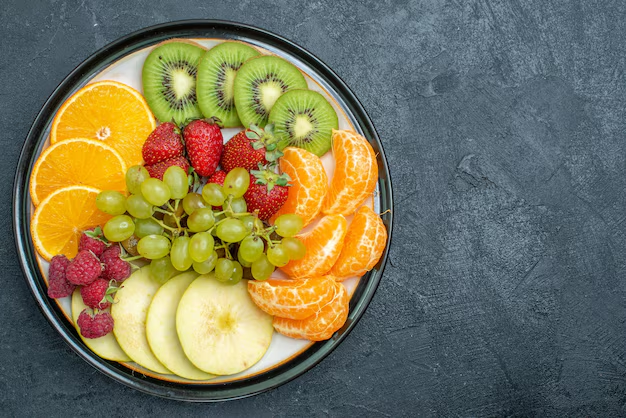
Fruits and vegetables help you feel full and satisfied while also providing your body with the nutrients it needs. Good options include carrots and hummus, apple slices with peanut butter or a handful of berries. Try different combinations to find your favorite.
Sliced apples, celery , baby carrots, Baby carrots , berries, grapes ,Cherry tomatoes, Sliced bell peppers, dried fruit and veggie chips and freeze dried fruits. These are some tasty and easy on the go fruits and veggie snacks that are delicious that are packed with vitamins, fiber and antioxidants. These will satisfy your sweet and savory cravings on the go without any high calorie snacks.
7.Eating Rainbow
Eating rainbow means eating a balanced diet which means eating foods from the five major groups fruits, vegetables, protein, grains, and dairy and their different colors indicate different benefits and nutrients present in them.

By adding an array of colors to your plate and think of it as eating the rainbow. Dark, leafy greens, oranges, and tomatoes—even fresh herbs—are loaded with vitamins, fiber, and minerals. Adding frozen peppers, broccoli, or onions to stews and omelets gives them a quick and convenient boost of color and nutrients. Fruits and vegetables of different colors confer various health benefits. By ensuring you’re eating a few colored fruits or vegetables at each meal, you’re setting yourself up for good health
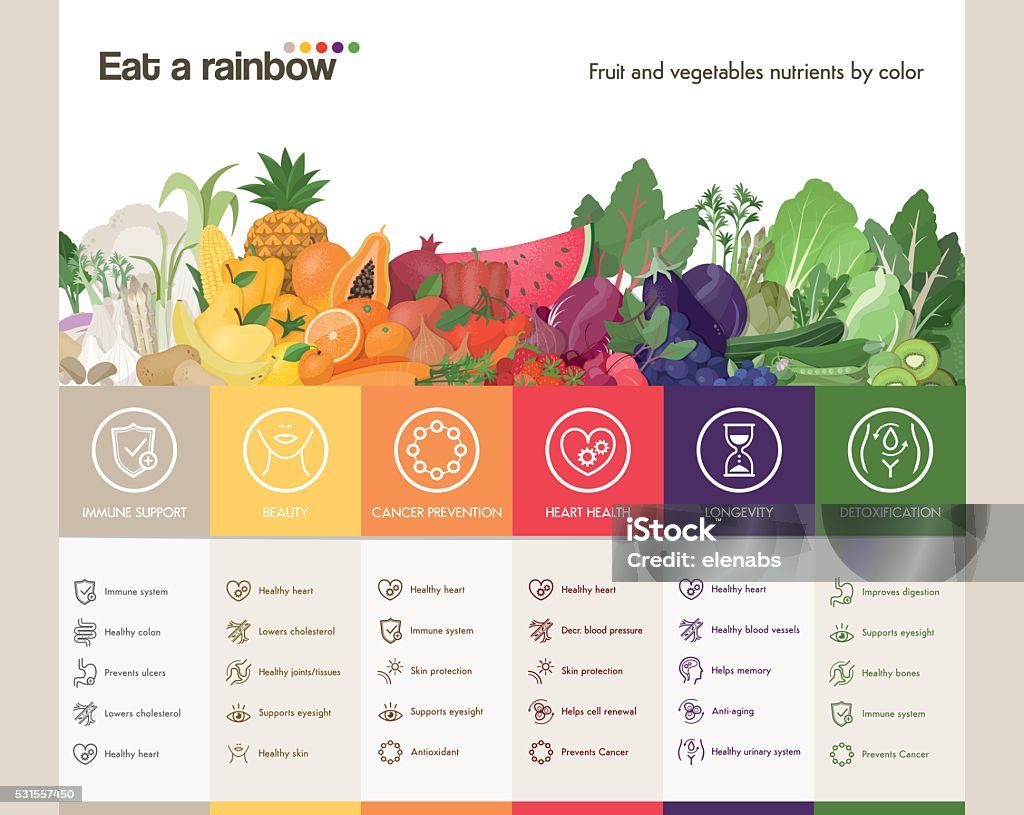
Some health benefits include anti-inflammatory, antioxidant ,may lower your risk of colon and other cancers, may benefit heart health and anti bloating.
To try eating the rainbow, work toward adding at least two or three colored fruits or vegetables to each meal and at least one or two to each snack.


